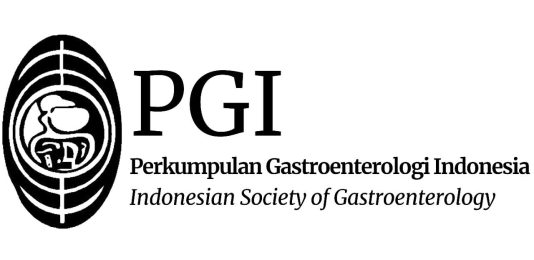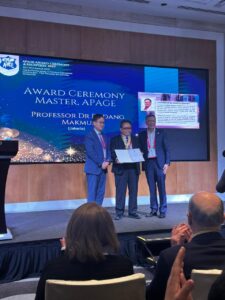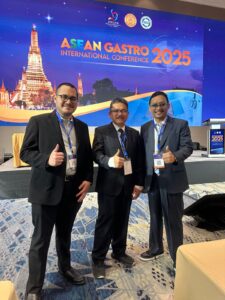
The health sector plays a significant role in contributing to one of the key issues that this nation must address. The Minister of Health, as the captain of health development, must collaborate with all stakeholders in advancing health initiatives. The roles of professional organizations, educational institutions, community organizations, the private sector, and other government institutions are crucial in achieving health development goals.
In 2024, we observe that the collaboration between the Ministry of Health and stakeholders in health development has not yet reached optimal levels. Health development stakeholders have participated and provided valuable input to help the nation address its health challenges.

The Indonesian Society of Gastroenterology (ISG) actively participates in health development, particularly in the field of gastroenterology. This includes continuing medical education to enhance capacity building among general practitioners, specialists, and subspecialists in gastroenterology, conducting multicenter research including clinical trials, and continuously educating the public through seminars, webinars, and social media. The ISG Executive Board also regularly updates consensus guidelines in gastroenterology based on evidence-based practices to guide healthcare professionals across Indonesia. Additionally, PGI actively sends experts to the National Agency of Drug and Food Control (BPOM) to provide expert opinions on new medications entering the Indonesian market. ISG also contributes to Health Technology Assessment (HTA) topics and serves as an expert team in drafting the national drug formulary.
Over the past year, the Ministry of Health has made significant efforts to implement the Health Law No. 17 of 2023 and its derivative regulation, Government Regulation No. 28 of 2024. However, these efforts appear rushed and, at times, have undermined previous initiatives. If not managed properly, conflicts arising from these changes could lead to prolonged disputes.
The transformation of health services, comprising six main pillars—primary care, referral services, health resilience, health financing, health resources, and technology—continues to be pursued through various breakthroughs. Several regulations have been introduced to support this transformation. However, the primary challenge lies in implementation, particularly in ensuring equitable distribution and continuous evaluation. Programs derived from the six pillars of health transformation still face numerous obstacles.
A major challenge is fostering collaborative efforts between the central and regional governments, as well as the community, including healthcare stakeholders. Sectoral egos remain prominent in health development. The concept of an Academic Health System (AHS), introduced during the presidency of Susilo Bambang Yudhoyono, appears to have received lukewarm support from the current Ministry of Health. If implemented consistently and fully supported, this concept could address many of Indonesia’s health issues, including the realization of the six pillars of health transformation. The AHS concept integrates the roles of the Ministry of Health with its vertical hospitals, educational institutions with their resources—including human resources, educational facilities, research, and healthcare facilities—and involves regional governments that represent communities and future healthcare professionals. AHS aims not only to produce competent healthcare resources but also to provide excellent healthcare services focused on achieving health development targets.
Through the AHS concept, health financing becomes more efficient, healthcare workforce distribution improves, innovative health research advances, and disease prevention efforts are optimized. AHS promotes resource sharing among all stakeholders involved.
Support for innovative health research, particularly by educational institutions, is crucial to produce affordable products for public use. Nationally, efforts to achieve self-sufficiency in the production of medicines, vaccines, and medical devices must be accelerated. Some domestic pharmaceutical companies have even gained acceptance for their products in neighboring countries. Meanwhile, the unrestricted financing by BPJS (Indonesia’s Social Security Administrator) should be limited. Recommendations from HTA must be implemented by the Ministry of Health, as they aim to control healthcare costs. Strong regulations are needed to reduce the importation of medical devices while encouraging the use of innovative local products, which can compete with foreign-made products. Other Asian countries, such as India, China, and Turkey, have made significant progress in producing high-tech medical devices, following the advancements of Korea and Japan. Currently, even accessories for gastrointestinal endoscopy procedures are still imported. Clinical practitioners would be happy to use high-quality local products if they are available in the Indonesian market.
Ultimately, the hope for a healthier Indonesia remains. The medical profession, as well as medical and health education institutions, must be engaged in communication and collaboration to catch up in health development efforts.








